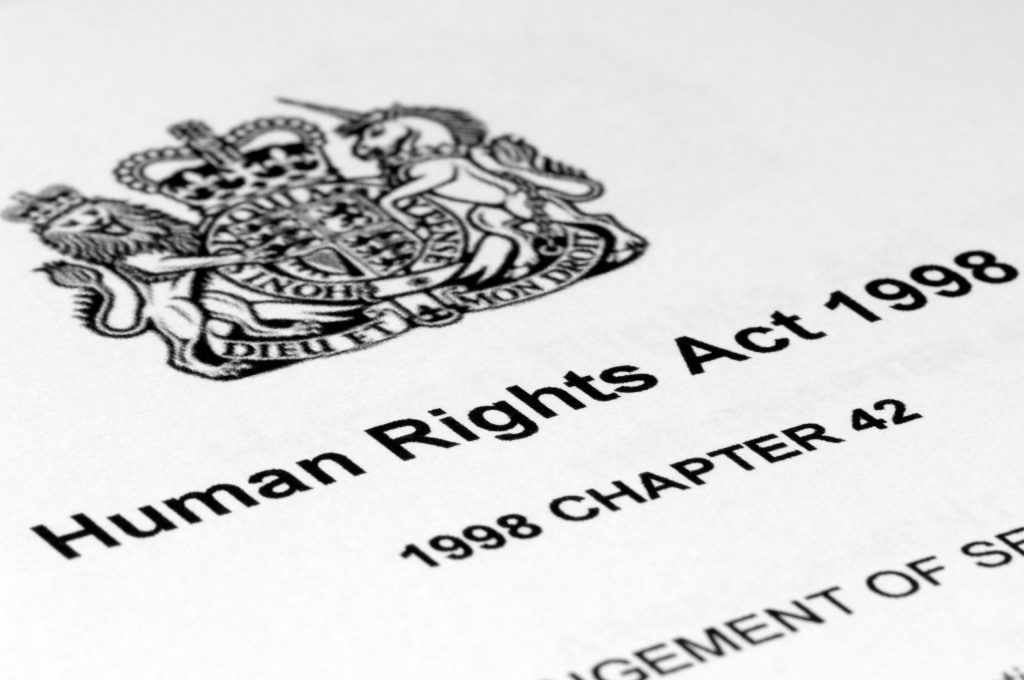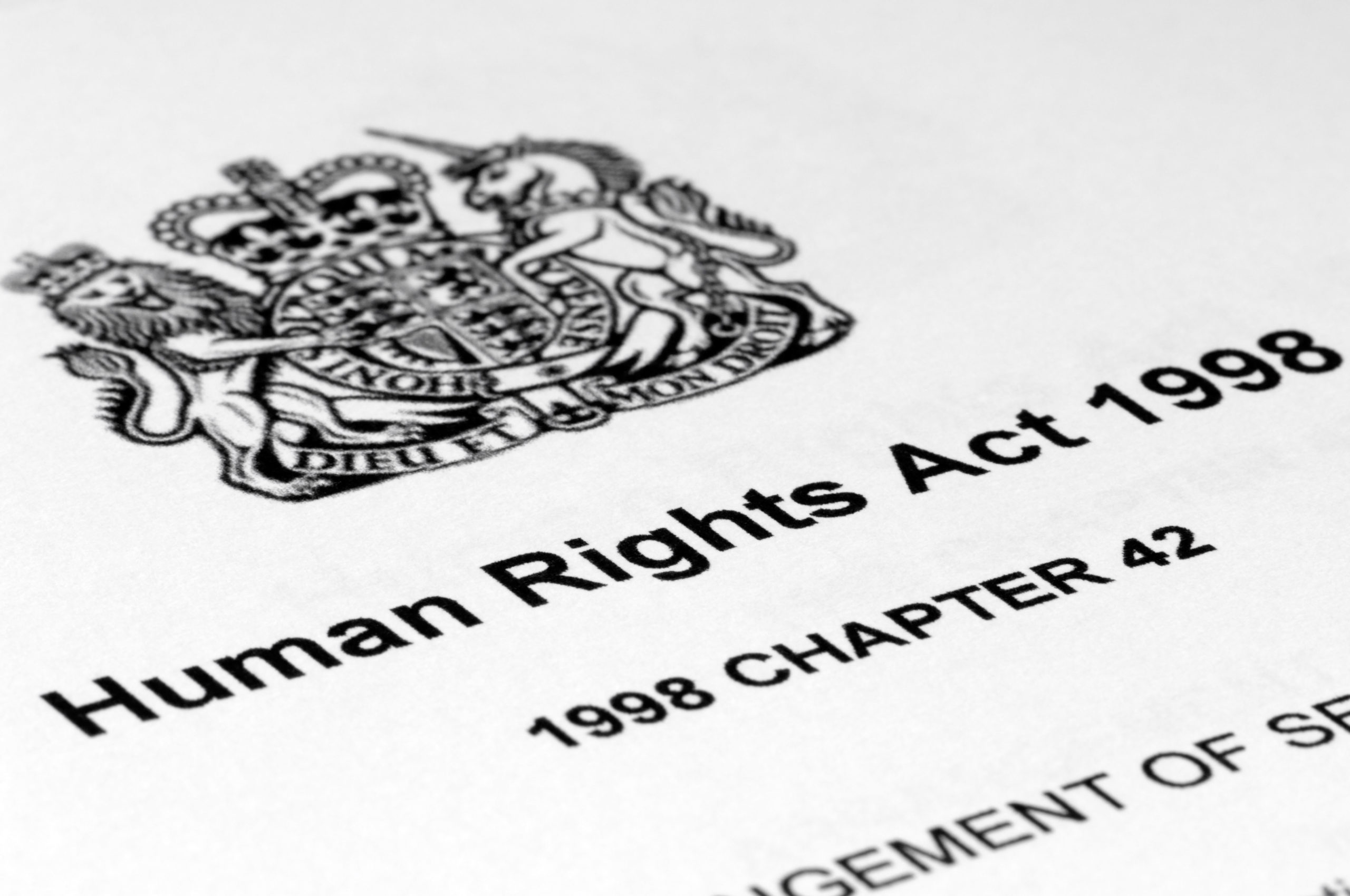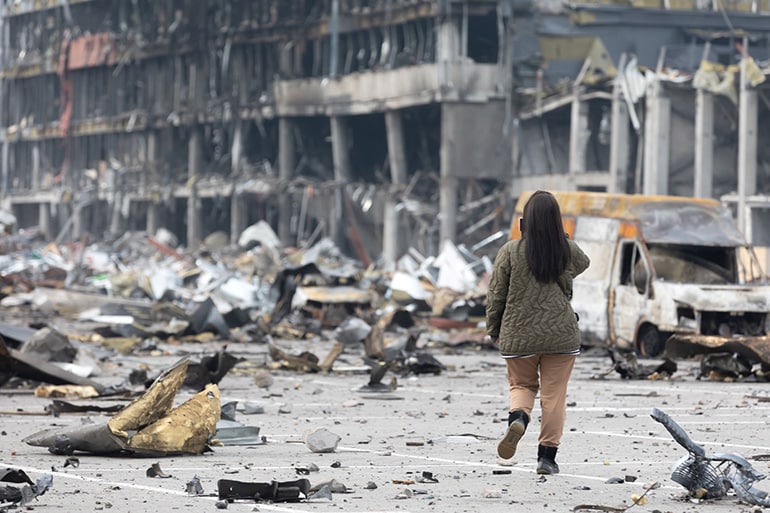Read our submission to the consultation on reforming the Human Rights Act here.
The Human Rights Act 1998 (HRA) is a piece of legislation which incorporates the rights contained in the European Convention on Human Rights (ECHR) into domestic UK law. It enables individuals to defend their rights in UK courts, as well as in Strasbourg, and requires public organisations to respect and promote human rights. The HRA contains 16 key rights, including the right to life, right to liberty, and the right to be free from discrimination.
What is the Human Rights Act?
The Human Rights Act 1998 (HRA) is a piece of legislation which aims to incorporate the rights contained in the European Convention on Human Rights (ECHR) into domestic British law. It enables individuals to defend their rights in UK courts, as well as in Strasbourg, and requires public organisations to respect and promote human rights. The HRA contains 16 key rights, including the right to life, right to liberty, and the right to be free from discrimination.
What is the government’s consultation on reform of the HRA?
Successive governments have signalled that they wish to reform the HRA. For example, the Conservatives promised to replace the HRA with a ‘British Bill of Rights’ in their 2015 manifesto, although this did not come to fruition in that parliament.
The current government set up an independent panel, called the Independent Human Rights Act Review (IHRAR), in December 2020, to examine how the HRA works 20 years after its creation.
In December 2021, the government published the IHRAR’s report. At the same time, it announced plans to ‘overhaul’ the HRA and replace it with a new Bill of Rights. It published a paper outlining this proposal in five main areas:
- Respecting common law traditions and strengthening the role of the UK Supreme Court
- Restoring a sharper focus on protecting fundamental rights
- Preventing the incremental expansion of rights without democratic oversight
- Introducing responsibilities within the human rights framework
- Facilitating dialogue with Strasbourg, while guaranteeing Parliament and the devolved legislatures their proper roles.
The consultation closed on 8 March 2022. The government will publish a report summarising the responses to the consultation and conduct an impact assessment checking how any reforms would impact different groups of people. It will then have to decide if it does indeed want to reform the Human Rights Act and will propose a bill if so.
The government’s plans have been widely decried by human rights organisations including Liberty, The British Institute of Human Rights, and Amnesty International.
What does ‘extraterritorial jurisdiction’ mean in relation to the HRA?
A contentious and difficult issue for both the HRA and ECHR has been the question of whether and in what circumstances the Convention applies to acts carried out in a foreign State, including during armed conflict.
Multiple court cases have confirmed that human rights do indeed apply in certain cases in overseas military operations. For example, when a State party exercises control over a foreign territory or when if it exercises authority over an individual. However, there is still significant debate about which specific circumstances apply.
It is the extraterritorial jurisdiction of the HRA which has allowed some civilians who have been harmed during UK military operations to claim reparations. While there are other legal avenues for individuals to pursue, many of these claims have been brought under the HRA. For more information on this, see CEASEFIRE’s latest report on reparations for civilian harm from UK military operations.
What does the consultation document say about extraterritorial jurisdiction?
Last year, the parliament passed the Overseas Operations Act 2021, albeit in significantly amended form. As part of the legislation, the government had initially proposed imposing a duty on the secretary of state to consider derogating from the ECHR in relation to ‘significant’ overseas operations. While this component of the bill was dropped, the Overseas Operations Act did introduce a new six-year limitation period or ‘longstop’ on claims made under the HRA. The legislation drew criticism from across a broad range of experts. For example, Michael Clarke, former Director General of Royal United Services Institute, argued that the proposals ‘fly in the face of international legal norms’ and former senior military figures and the Law Society lined up to add their criticism.
The government’s consultation paper includes one main section on the extraterritorial jurisdiction of the HRA (pp.277-281). The paper argues that while the HRA and ECHR have created ‘uncertainty’ for members of the armed forces engaging in overseas operations, there is ‘no domestic legislative solution’ to this issue, as it may create a ‘gap’ between the ECHR and domestic legislation.
Instead, the paper adopts the recommendation from the IHRAR panel, which is that the Government raise the issue with other State Parties to the Convention in the hopes of amending the ECHR to limit its applicability in overseas military operations.
What does CEASEFIRE say about this proposal?
The proposals in the consultation paper pose a troubling risk to the rights of civilians in conflict.
Firstly, the proposed approach would be difficult to achieve in practice. Even when there has been widespread recognition of the need for reform within the Convention system and diplomatic will to achieve it, the process of reforming the Convention has usually involved multiple inter-governmental conferences. However, there is no recognised need for this reform. Leaving aside the technical difficulty of the subject matter, such a protocol may also be perceived as an attempt to weaken accountability for abuses by the military forces of powerful States. Given that the most prominent likely supporter of such a protocol, other than the UK, would be the Russian Federation, its promotion in the current circumstances would be politically untenable.
Furthermore, CEASEFIRE’s view is that this should not even be attempted by the government. The HRA has provided civilians with an important mechanism to get some compensation for harm caused by the UK’s military operations, as outlined in our latest report.
Rather than trying to change the application of the law to military operations, the government should take alternative approaches to address underlying problems which lead applicants to use the ECHR/HRA system in the first place.
CEASEFIRE makes the following recommendations to the government:
- Improve enforcement of International Humanitarian Law in military operations
- Offer alternative, independent and effective forums for complaints to be addressed
- Conduct prompt, effective independent and impartial investigations where problems arise in theatre and improve investigation methods
- The UK should seek complementary application of International Humanitarian Law and International Human Rights Law during military operations, as this is consistent with the UK’s other legal obligations and international legal practice.
Read our submission to the consultation on reforming the HRA here.
Read our report on reparations for civilian harm from UK military operations here.























